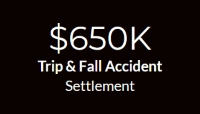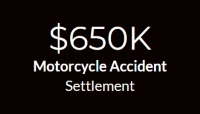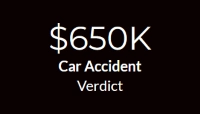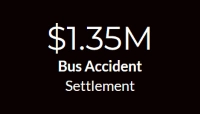“What happens if someone else is driving my car and gets in an accident?” That’s a question that many car owners never consider until it’s too late.
While 92% of American households own at least one vehicle (a number that drops drastically in the New York metropolitan area), many households have to share that single car.
Whether you’re letting a friend use your car to move apartments or loan your vehicle to a family member for a weekend getaway, if that person gets into an accident, you’ll want to know what your options are and what legal recourse is available to you.
We’ve seen all sorts of cases here at our law firm in Brooklyn, New York, and want to share valuable insights and tips to help educate you on this often-overlooked topic. By the time you reach the end of this guide, you’ll be better equipped to handle situations where you’re not behind the wheel, but your car is involved in an accident.
What Happens If Someone Else is Driving My Car and Gets in an Accident?
Has this ever happened to you? You lend your car to a friend or family member, and they get into an accident. Now, you might be wondering, “What happens if someone else is driving my car and gets in an accident?”
As a Brooklyn-based law firm that serves clients with car accident cases, we want to help you better understand the situation and your options. To do that, it’s important to establish who is at fault for the accident: the person driving your car or a third-party driver who caused the crash.
Third-Party Fault
If someone else (not you or the person driving your car) caused the accident, then the at-fault driver’s insurance would generally cover the damages regardless of who was driving your car. This is called third-party liability.
So, if your friend borrowed your car and was hit by a driver running a red light, that driver’s insurance would cover the damages to your vehicle and any medical bills or other expenses related to the accident.
However, it’s important to note that the limits of the other driver’s insurance coverage could impact the total compensation you receive. If the other driver doesn’t have enough insurance to cover all the damages, you might need to rely on your insurance policy to cover the remaining costs.
Driver’s Fault
Things get a little more complicated if your friend causes the accident while driving your car. As the car’s owner, you can be held legally responsible for any damages and injuries caused by your car, even if you weren’t driving at the time of the accident.
In this scenario, it’s a good idea to double-check your car insurance policy to see what kind of car accident coverage you have for situations like this. See if it covers drivers who are not listed on it. If the policy doesn’t cover this situation, you may have to pay for the damages and injuries out of pocket.
However, it’s not all doom and gloom. There are a few circumstances where you may not be held responsible for the accident.
For instance, if your friend was driving under the influence or outside the scope of the permission given to them (we’ll talk about permission in just a bit), you may not be held responsible. Additionally, if your car has a security feature such as a keyless entry system, and it was stolen without your or your friend’s knowledge, then you won’t be held responsible for the accident.
No-Fault Insurance
What’s most important to take away from this information is that New York is a no-fault insurance state. Not only that, but it’s mandatory in the State of New York (as opposed to other states where it’s optional).
This means that regardless of who caused an accident, your own insurance will typically cover your damages. So, as mentioned, if someone else is driving your car and gets into an accident, your insurance would still provide coverage for any injuries or property damage.
Of course, this doesn’t mean you can’t sue the other driver in some situations. For example, if the accident involves serious injuries or exceeds the state’s financial threshold for damages, you may be able to seek compensation beyond what your insurance provides. However, these situations can be complex and difficult to navigate without the help of an experienced car accident lawyer.
One of the downsides of the no-fault insurance system is that it limits the compensation you can collect. For example, you won’t be able to collect damages for pain and suffering unless you meet certain criteria established by state law. This can be frustrating for drivers who have been seriously injured in an accident and feel like their insurance isn’t providing enough support.
Despite its limitations, no-fault insurance can be a valuable tool in the aftermath of a car accident. It provides financial protection to help you recover, even if the accident wasn’t your fault.
Permissive Use vs. Non-Permissive Use
Ultimately, who’s at fault and whose insurance has to pay for the damages caused by a car accident depends on whether or not you gave the driver permissive use of your vehicle.
Permissive use means that you allow someone else to use your car, either explicitly or implicitly. For example, if you hand your car keys to your friend and tell them they can use it for the day, that’s permissive use. But if someone takes your car without your permission, that’s non-permissive use.
This makes a big difference in determining fault, as non-permissive use of your vehicle means you cannot be held responsible for damages that occur due to an accident when you weren’t driving.
Permissive Use
If you give a driver permission to use your car, your insurance coverage will generally extend to them. This is known as the permissive use doctrine.
Your liability coverage will act as the primary coverage and pay for damages until it is exhausted. This means that if your friend causes an accident that hurts someone else, your insurance will pay for the damages up to your policy limit.
At that point, your liability coverage will trigger the liability insurance of the driver of your vehicle. The driver’s insurer will then become the secondary coverage and pay for any remaining damages until it’s been exhausted.
In extreme cases where the accident was severe, and damages exceed both policy limits, the injured party may sue you and the driver for additional compensation.
Non-Permissive Use
If the driver was driving your car without your permission, that’s a non-permissive use of your vehicle. In this scenario, your insurance coverage will not extend to the driver.
Instead, the at-fault driver’s insurance coverage will pay for the damages. If the driver doesn’t have insurance, the injured party may sue you and the driver for compensation. So, it pays to check your coverage before letting someone else drive your car, as it could lead to a costly legal battle and the loss of tens (if not hundreds) of thousands of dollars.
If you suspect non-permissive use of your car, you should report it to your insurance company immediately. Failure to do so could result in a denial of coverage, or your insurance company may accuse you of insurance fraud. It’s better to be safe than sorry, so make sure you’re clear on who is driving your car and under what circumstances.
What If Insurance Refuses to Pay?
Unfortunately, there are instances where car insurance companies might reject a claim, leaving you on the hook for the costs. Here are some common reasons why insurance companies might refuse to pay for a car accident caused by a driver using your car and what you can do in those cases.
The Driver Wasn’t Covered
When lending your car to someone, it is essential to ensure that they have a valid driver’s license and are covered by your insurance policy. As mentioned, some auto insurance policies don’t cover third-party drivers who don’t live in your household.
Your insurance company could refuse to pay the claim if the driver isn’t covered. To avoid surprises, check your policy for restrictions or exclusions on who can drive your car.
The Driver Was Intoxicated or Unlicensed
If the driver who caused the accident was drunk or under the influence of drugs, your insurance company might refuse to pay the claim. Similarly, the insurance company could reject the claim if the driver didn’t have a valid license when driving your car.
In these cases, you might be held liable for the damages or injuries caused by the accident. As a car owner, it is your responsibility to ensure that you only lend your car to responsible and licensed drivers.
The Driver Was Using Your Car for Commercial Purposes
If the driver was using your car for commercial purposes at the time of the accident, such as delivering food or driving for a ride-sharing service, your personal car insurance policy might not cover the damages.
In this case, the driver’s employer or the ride-sharing service might have an insurance policy to cover the costs. Check with your insurance company about commercial use restrictions before you lend your car to someone for business purposes.
Your Policy Lapsed
If your insurance policy was inactive or canceled on the day of the accident, your insurance company will not cover any damages. It’s crucial to keep your insurance current to avoid a policy lapse, as it can be costly and leave you without coverage when needed.
What to Do When Your Claim Is Rejected
You have several options if your insurance company refuses to pay the claim. The quickest is often to dispute the decision with the help of a car accident lawyer.
A qualified car accident lawyer can review your policy and the facts of the accident and determine whether the insurance company has a valid reason for rejecting the claim. If the rejection is unjustified, your lawyer can negotiate with the insurance company or take legal action to recover the damages.
Alternatively, you can file a claim with the driver’s insurance company if they have an existing policy. If none of the above options work, you might have to pay for the damages out of your pocket. However, if you have collision coverage or uninsured motorist coverage on your policy, you might be able to recover some of the costs.
Car Accident Documentation: What to Do After a Car Crash
No one ever wants to get into a car accident, but knowing what to do is important if it happens. Documenting any accidents can make all the difference if you need to present a legal case eventually or argue a claim with your insurance company.
Make sure to inform anyone driving your car of what to do should they get in an accident, as it’ll likely be your insurance company responsible for paying.
Document the Crash
If you or someone driving your car gets into an accident, you should first document everything. Take photos of all the damage, including photos of both cars from various angles. Note the location, time, and weather conditions of the accident.
If there were any witnesses, try to get their contact information so they can provide testimony should you need it in the future. Write down everything you can remember, including statements from the other driver (especially if they’re verbally admitting fault; that’s something you definitely want to record or get in a written statement).
It’s also important to get a copy of the police report as soon as possible. The police report will provide details about the accident, including which driver was at fault. This information is crucial if you need to file a lawsuit or claim with your insurance company.
Call a Car Accident Lawyer
After documenting the accident and gathering evidence, consult with a car accident lawyer. Experienced car accident lawyers can help you understand your legal rights and provide guidance on how to proceed. They can also help you negotiate with the insurance companies and ensure you receive the compensation you deserve.
Of course, if you or anyone driving your car has been injured, it’s important to seek medical attention immediately. However, speaking with a car accident lawyer is advisable before speaking to any insurance adjusters.
Understand Your Insurance Coverage
It’s important to understand your insurance coverage before an accident occurs. Ensure you know what kind of coverage you have, including liability, collision, and comprehensive coverage.
Liability coverage pays for damages you cause to other drivers’ property or personal injuries. Collision coverage pays for damages to your car in the event of a collision. Comprehensive coverage covers damages to your car caused by events other than collisions, such as theft or vandalism.
It’s also important to know your policy limits. Insurance policies typically limit how much they will pay for each type of coverage. If the damages from a car accident exceed your policy limits, you’ll be responsible for paying the difference.
Tips for Making a Car Accident Claim
Here are some tips to help you make a car accident claim with an insurance company when you weren’t driving the car, but it was the driver driving your car’s fault.
Contact the Insurance Company
Once you have gathered all the necessary information, you should contact your insurance company immediately. You will need to provide them with the details of the accident, including the other driver’s information and any pictures you may have taken. Your insurance company will then investigate the claim and determine who was at fault and what damages need to be paid.
Understand Your Insurance Policy
Again, it’s important to understand your insurance policy and what it covers. Some insurance policies may have exclusions for certain drivers, limitations, or deductibles that apply in certain situations. Read your policy carefully and understand your coverage to better understand what you may be responsible for in the event of an accident.
Consider Legal Assistance
If the other driver was at fault and you or someone in your car was injured, you may be entitled to compensation beyond what your insurance company will cover. A Brooklyn car accident lawyer can help you navigate the legal process and ensure you receive the maximum compensation for any damages incurred.
The Bottom Line
Even if you weren’t involved in the crash, car accidents are stressful, time-consuming, and even traumatic to work through. By following these tips, you can better understand what to do if someone else is driving your car and gets into an accident.
Remember to gather information at the scene of the accident, contact your insurance company, understand your insurance policy, and consider legal assistance if necessary. Doing so can ensure you receive the compensation you’re entitled to and move forward from the accident.
Working With a Car Accident Attorney
If you’ve decided to work with a car accident lawyer, you might wonder what to expect. Aside from helping you navigate the legal system and ensuring you receive the compensation you deserve, here’s what to expect and how the process works.
Initial Consultation
The first step in working with a car accident attorney is to schedule an initial consultation. During this meeting, you’ll discuss the details of the accident with the attorney, and they will explain how they can help you. They’ll also ask questions about your insurance coverage and any medical treatment you’ve received or may need in the future.
Investigation
Once you’ve hired a car accident attorney, they will investigate the accident to gather (more) evidence that can be used to support your claim. This may include interviewing witnesses, reviewing police reports, and gathering medical records. This is why gathering your own evidence is so important after the accident, as that documentation can help speed up the legal process.
Negotiating with Insurance Companies
Your attorney will work with the insurance companies involved to negotiate a settlement on your behalf. They’ll work to ensure that you receive the compensation you deserve for medical expenses, lost income, and pain and suffering.
Litigation
If a settlement cannot be reached through negotiation, your attorney may decide to file a lawsuit on your behalf. They will represent you in court and work to prove that the other driver was at fault and that you deserve compensation for your injuries.
Benefits of Working with a Car Accident Attorney
Working with a car accident attorney can be incredibly beneficial in cases where someone else was driving your car and caused an accident. Here are a few of those benefits.
Legal Expertise
Car accident attorneys have a deep understanding of the legal system and can help you navigate the process. They can help you understand your legal options, protect your rights, and negotiate with insurance companies.
Maximum Compensation
Car accident attorneys work to ensure that you receive the maximum compensation possible for your injuries. They understand how to calculate damages, including medical expenses, lost income, and pain and suffering.
Peace of Mind
Finally, by working with a car accident attorney, you’ll have peace of mind knowing that you have a legal expert on your side fighting for your rights. You can focus on your recovery while your attorney handles the legal details.
Speak with a Car Accident Lawyer in New York
Still wondering, “What happens if someone else is driving my car and gets in an accident?” If the third-party driver is at fault, their insurance should cover the accident. If the person driving your car was at fault, your insurance will likely cover the damages if that’s part of your policy.
Regardless of who’s at fault, if someone else is driving your car and gets in an accident, working with a car accident attorney is extremely helpful. Our experienced team at the Law Offices of Fredric S. Masure is here to help you get the compensation you deserve.
With attorney Fredric’s personal attention and successful track record, you can trust us to fight for your rights every step of the way. Fill out this contact form, call us at 347-835-4306, or stop by our office at 1932 Ralph Ave., Brooklyn, NY, for a free consultation.





